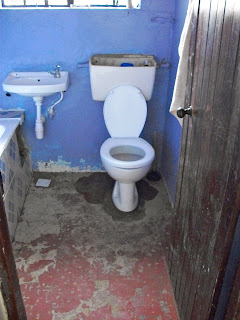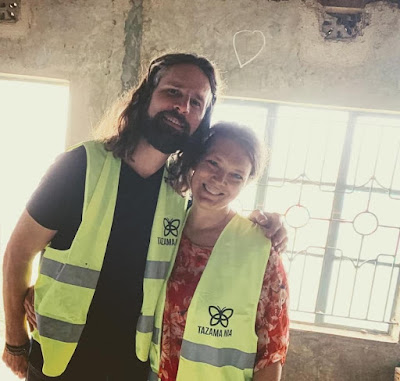Our Syrian, African, European, Global Refugee Crisis. - by Brad Matlack
The recent media photos and stories that have been coming
out in America are giving more attention to the global migrant crisis. Media in Africa and Europe have been talking
about this with greater urgency for at least the last three years at a much
higher level of urgency that we have been aware of in the U.S. I have been surprised by the fact that this
seems to be somewhat of a new story for some.
Maybe it is just that the American church is first now waking up to
these horrific facts.
Global media such as BBC and Aljazeera have been documenting
this for a few years now. You
might be loyal to Fox News or CNN America, but it wouldn’t hurt for some of us to
go back and look at some of the stories and documentaries on this topic
reported from foreign media over the last few years. The alarm has been sounding for a long time
already. At least take the time to look
at a map and find some of the routes these boats might be taking from North
Africa to Europe. Knowing this alone is
sobering.
I believe this information delay happens primarily because
the issue is not on our front lines in the U.S. as it is in Africa, the Middle
East and Europe. While the U.S. does
take in thousands of refugees each year, they are not necessarily arriving in
the helpless, destitute and malnourished condition like those in the photos
arriving from North Africa in the overcrowded boats. Yet, we have seen this in the U.S. in the past
from migrants risking their lives in small boats coming from Cuba trying to
reach the tip of Florida. Maybe being
born and raised in Italy, my ears are more sensitive to the news over in
Europe. More than 350,000 refugees have
tried to enter the E.U. for asylum so far this year. More than 2,600 migrants have drowned
in the Mediterranean this year, trying to reach Greece or Italy - all in the
hands of paid people traffickers. Statistics
such as these are updated daily in other global news.
We might feel helpless and even ask God
why he allows such things to happen. Surely
God feels indignation by the injustice and sorrow in the suffering and death
and longs for reconciliation in the lives of migrants. When reading the Bible,
we find a God whose character loves to rescue people but we should also
remember that he has always had the big picture in mind. Jesus always stayed focused on the bigger
picture of the Kingdom. He healed today
but it was always in order to reveal the eternal message of God’s kingdom.
Part of that bigger picture is that we are
also part of the story. God wants you
and I to be part of the transformation so that when goodness prevails, when
evil is thwarted, when a migrant is rescued, when we are somehow involved, even
we are transformed, and He is glorified!
God is calling his children to himself.
He is still God of the nations, working out his sovereign plan, bringing
us and more into eternal glory in amazing, unusual, not our plan, awesome, epic
ways so that he and not us can receive the most glory!
Here are some things that we, the
church, should be thinking about.
1.
God does not just want to rescue
people, migrant refugees, from their physical plight. He cares about their whole beings and more
than anything wants them to know Him, to know Jesus, to feel his love, to
receive his grace, to understand the story, so that even others will hear and
know Him and so that God will be even more glorified. If we, the church, only desire the physical
rescue for these people, we are suffering from a myopic view of the
Gospel. When we want and long for more
for them out of the physical, spiritual, emotional, relational, we align
ourselves properly with God’s plan for them.
2.
God most likely wants us to use these crises as
a way for us, the church, to “position for discipleship”, to continue on course with the mission of Jesus given to the
church. You might be wondering how you
could disciple a refugee? It starts with
a relationship. Do you even know a
refugee? Your city or town most likely
has given asylum to migrants and refugees.
You know those Arabic speaking foreigners who just moved in up the
street? There is a very good chance they
have a story of escaping tyranny, trafficking, war, not too different than the
migrants on boats. Do you feel the same
level of compassion for your neighbor as you do for the drowning migrants? Is it a coincidence that God landed them on
your street, in your school, at your work…
3.
God, the Holy Spirit is challenging us, the
church to think and act more globally. But this is not just awareness to
disciple refugees, it is about us reaching, telling, positioning to disciple
everyone, everyone! As far as the global
crisis, if it makes you feel better you could send money to an NGO. (Side note: I’m not a
proponent of only giving since it creates a false sense of fulfillment maybe this is for another blog post). We
ought to send trained people who will help, we should partner with those who
are on the front lines rescuing migrants for the sake of the Gospel. If you are having trouble finding someone
serving on the front lines for the sake of the Gospel, maybe you are the one
who should go.
4.
God may be challenging you to check your
dependence on Him. Church, what are you
depending on him for? How can we teach
the world about our dependable God? How
can we tell the world about the Biblical stories of asylum, rescue and
redemption. Our stories today are
nothing new. God has already written out
these stories. Why are we so shocked and
surprised by them? History has always
been as tragic. Could it be that the
church has become lest active and less relative to crises? Why do we let ourselves get so comfortable and
complacent that when a crisis comes it plows us down? The whole world is floating, wondering on the
proverbial boat waiting to be rescued, daily drowning, longing to reach a place
of peace. Shouldn’t our hearts maintain
a torn and devastated shape, constantly challenging us to be before the face of
God and desperately discovering his eternal glory?
Let these media stories move you now and challenge you but
don’t get comfortable! Don’t let the
consumerist society deceive you into thinking that it’s ok to forget and
eventually look away. Stop being so
surprised by evil. Forgetting to be in on God’s plan, not staying with His
heartbeat, pursuing a comfortable life and forgetting the world is exactly what
Satan’s plan is, pulling us away from God.
Jesus taught the Apostles right.
They were focused on the Gospel.
They willingly suffered for it!
I have recently been reminded of the words of Clement
(A.D. 30-100, lived during the time of the Apostles and the early church)
writing to the Corinthians: "We know many among ourselves who have given
themselves up to bonds, in order that they might ransom others. Many, too, have
surrendered themselves to slavery, that with the price which they received from
themselves, they might provide food for others." This was the early church. They were willing to become slaves so that
others might be fed and perhaps discipled so that they would understand and believe
the Gospel. This really challenges
me! Would we be willing to do this
today? Of course slavery is different today than it was 2000 years ago so maybe we would not be slaves, but how do we place this passion into
our context? Would we willingly become
migrants? Would we be willing to turn
our lives upside down for the sake of the Gospel? Will we reach the migrants coming to our
shores and living on our block?
Recognize what God might be up to. He knows that it would be impossible for us
as Americans to go and make disciples in Syria today. In his amazing, unusual, not our plan,
awesome, epic plan, He has brought Syria and the rest of the world to our doorsteps
so that we might not need to go. But
that means we must make the most of the opportunity he has invited us to
participate in. Reaching your migrant
neighbor, a drowning child of God.
The photos above are not from the Syrian refugee crisis. They are Rohingya people. Look up a search on their migrant story as a
rejected people, the Rohingya of Myanmar.
What might God’s story be for them? How might we help them?
-B



Comments
Post a Comment